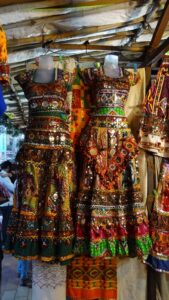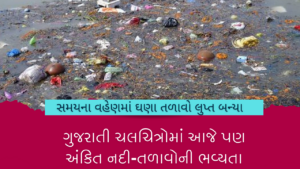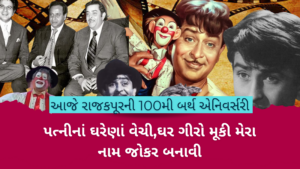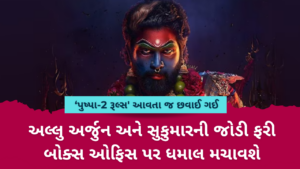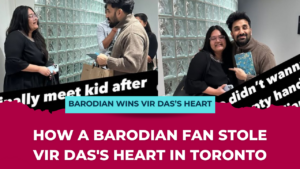Navratri is one of India’s most widely celebrated, vibrant and colorful festivals, observed in the honour of Goddess Durga. Navratri as we know it, is celebrated over nine nights (10 days) according to the Hindu calendar in the months of September and October. However, what adds to the ‘colorful’ aspect of Navratri is the dazzling attire donned by men, women and children alike. Every year, we see a shift in the Navratri fashion trends, with citizens adopting traditional patterns more each year albeit keeping the modernity intact as we get with the times.
Navratri in Sanskrit refers to ‘nine nights’ (Nava meaning ‘nine’ and Ratri meaning ‘nights’). However, Navratri is synonymous with Durga Puja, celebrated in Eastern and Northeastern parts of India. In the South, Navratri is celebrated as the victory of Goddess Durga or Kali. However, the common theme of Navratri is the victory of good over evil.
Each of the nine days of Navratri has a specific name and significance attached to it, that being every day is dedicated to Goddess Durga and her nine avatars incarnated and each day has a specific name: Pratipada is associated with Shailaputri, Dwitiya with Brahmacharini, Tritiya with Chandraghanta , Chaturthi with Kushmanda, Panchami with Skandamata, Shashtami with Katyayani, Saptami with Kalaraatri, Ashtami with Mahagauri, and Navami with Siddhidatri.
Navratri is one of Gujarat’s main festivals. The traditional celebrations include fasting for a day or partial fasting for each of the nine days. In several Gujarati communities, ‘Garbo’ or Garba is performed on all nine days with devotional songs playing in the background. Garba is played in large circles with aerial views showing a concentric pattern on the Garba grounds. Some communities use wooden sticks called ‘Dandiyas’ during Garba by clicking their sticks with one another and coordinating their movements.
NAVRATRI IN VADODARA
Navratri is stereotypically associated with the state of Gujarat especially due to Garba performed in large circles by a large number of people in all cities. However, the most colorful Navratri celebrations can be seen in Vadodara, a small city that houses a population of 21.8 lakh citizens who come together in attires representing the VIBGYOR on nine different days in the city.
Hence, prior to Navratri, Barodians can be found flocking the shops at Nava Bazaar, Mangal Bazaar and Mandvi areas in the ‘City’, with every store bustling with customers shopping for various sets of ‘Chaniya-Choli’ and jewelry.
It is therefore important to note that Navratri fashion trends are a big deal in Gujarat as the traditional ‘Chaniya-Choli’, which comprises of a full length Ghagra decorated with mirror work, embroidery and other patterns per the customer’s preferences and a ‘Choli’ or blouse comprising of the same patterns.
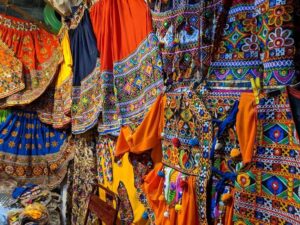
However, due to the pandemic, Navratri celebrations were halted from 2020-2022 and with the ban lifted this year, all eyes are on the upcoming trends, new patterns for each of the nine days this September.
We were in conversation with renowned Vadodara-based fashion designer Binal Shinde, who has an experience of over 10 years in designing traditional attire for women and men, to discuss the current fashion trends during the festival of Navratri in both Men’s and Womenswear.
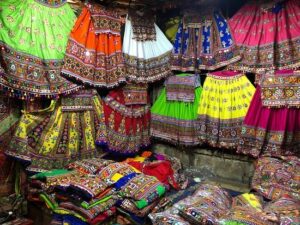
According to Binal Shinde, there has been a major change in the color schemes, length of the ‘Chaniya’ and the patterns in ‘Cholis’. With the ban lifted on Navratri celebrations, citizens have been spending thrice as much as compared to two years ago as they believe in making the best of what is available due to uncertainties associated with the pandemic. In 2022, women prefer longer Chaniyas, approximately 8-10 metres long with double the flare. Women are moving towards traditional dressing, which is evident in their preferences for intricate embroidery and mirror work in their Chaniya-Choli set.
Cotton is the preferred choice in garment material and ‘Leheriya’ prints are a top favorite. As far as the color scheme is concerned, Binal Shnde observed that the primary color scheme was most preferred as Reds, Greens, Blues and Yellows mostly make up for the majority of the Chaniya-Choli set orders she has received in Vadodara. A small population prefers pastel shades in their attire but those are now replaced with loud colours as people wish to embrace the vibrancy of the festival itself. The Most popular Choli patterns are backless, minimal with half or three-fourth sleeves. This shift from sleeveless Cholis to sleeved ones is due to the need for embracing and incorporating traditional patterns in the post-pandemic attire.
Women prefer more oxidized and affordable jewelry available in a multitude of patterns, shapes and sizes. This shift from minimal jewelry to intricate, large-sized and heavy earrings, chokers and dark shades is due to the need to look extravagant after a two year break from the pandemic.
As far as Menswear is concerned, the traditional draped (or undrapaed) Kurta and Pajama/pants, preferably cotton, is evergreen. Men are moving towards darker shades and ankle-length pajama pants to be paired with their Kurtas. However, smaller circles prefer the complete traditional Gujarati ‘Kedia Dhoti’ look this year, for themselves and not just for participating in Garba competitions.

An interesting aspect is that the traditional ‘Pagdi’ or the turban worn by men is now occasionally worn by women as well. This can be particularly observed among a group who decide on a particular dress code to go with their turban. Gender stereotypes are broken during this festival, and more of this modernity can be seen this year.
Overall this year, Navratri celebrations will see a major change as citizens will be coming back onto the ground after two whole years, brimming with energy and bursting with excitement. We are excited to see what Barodians bring to the field this year on Navratri, what colours will they adorn themselves with and if they will be able to keep up with their ‘dazzling’ status as is the way every Navratri in Vadodara.


